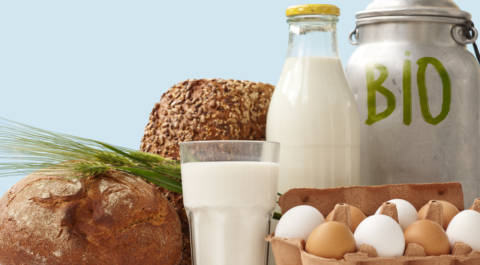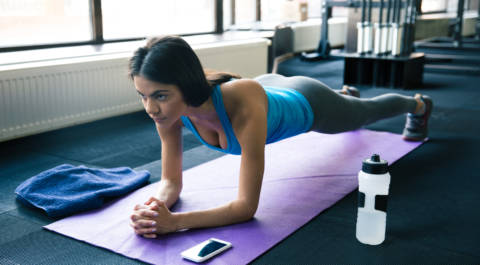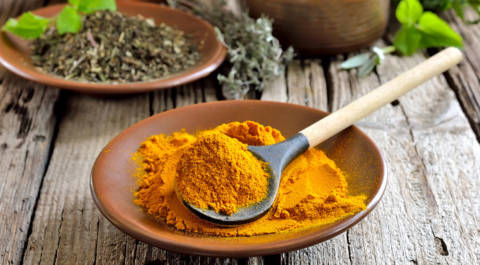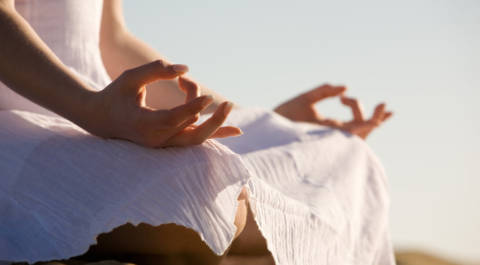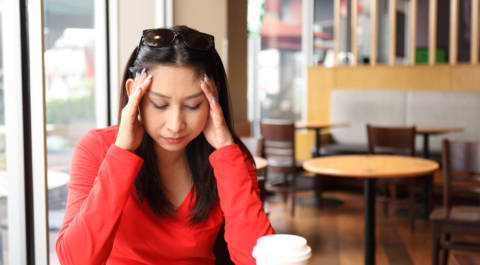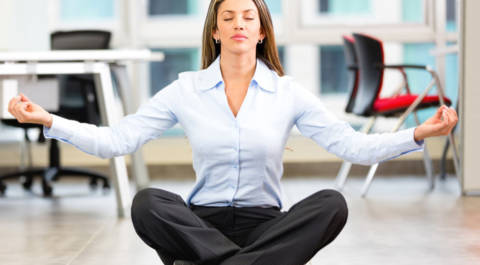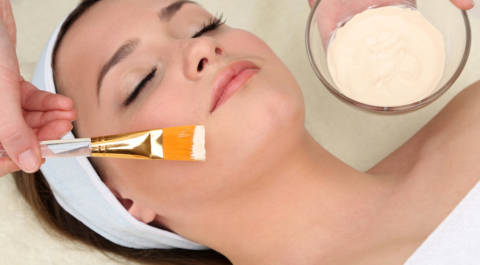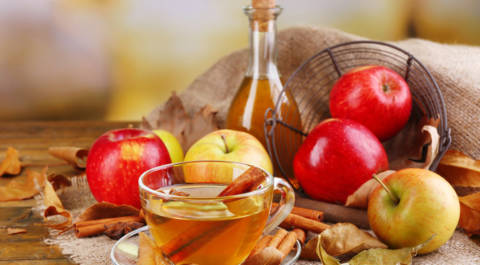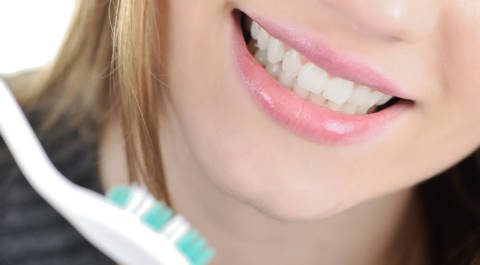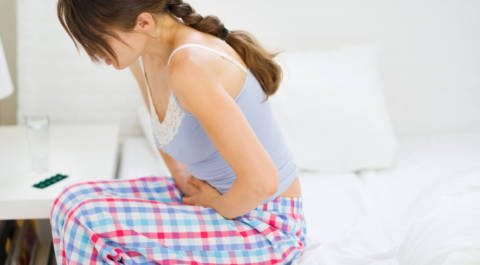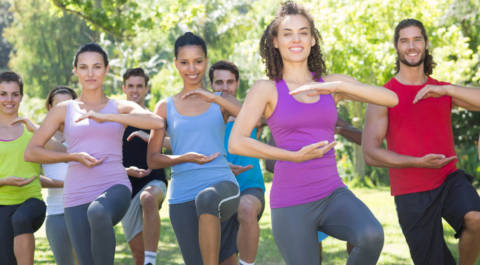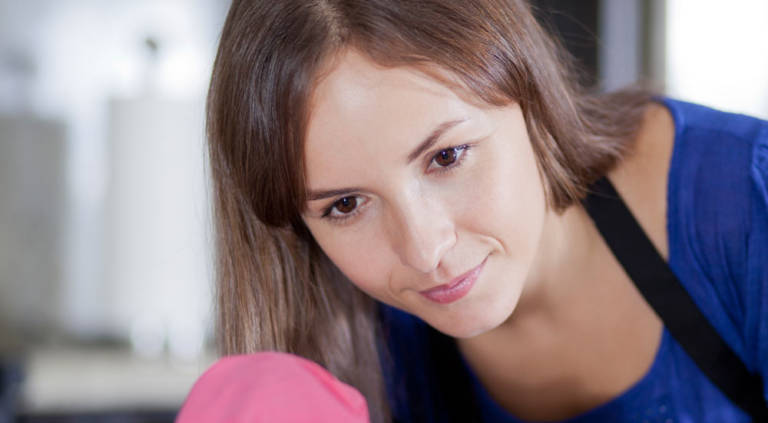
You want to make your home a healthier place to live, but then you look at the price of organic food and toxin-free beauty products and feel yourself break into a sweat.
Like Organic Soul on Facebook
Buying the healthy alternatives to traditional products can be a tremendous burden on your finances, and if that's the only way that you make yourself healthier, you may feel the pinch before long. However, that isn't the only way to a healthier lifestyle.
Here are seven ways you can make your home a healthier place – no purchase necessary…
1. Take Off Your Shoes
As soon as you come into the house, take your shoes off. This doesn't just keep you from tracking dirt around the house, although reducing the amount of time you spend sweeping is a definite plus.
Wherever you go when you leave the house, your shoes pick up all sorts of things that you would never willingly allow into your home: pesticides, cleaning chemicals, viruses and bacteria, and allergens are just the tip of the iceberg. Taking them off lets you leave those toxins by the front door.
2. Open The Windows
No matter how healthy you try to keep the inside of your house, toxins and vapors can build up – residue from the cleaners that you use, gases that are released from plastics and furniture, and so on. Opening the windows can let those chemicals out and bring in the outside air.
Of course, if you know that you live in a smoggy and polluted city, keeping the windows closed may be a better idea for keeping chemicals out of your house!
3. Dust And Vacuum
Dusting and vacuuming may not be the most exciting way of keeping your home healthy, but it's one of the most effective. If you let dust build up in your home, you're making it a haven for dust mites – tiny creatures that can cause asthma in previously healthy people and can make your asthma or allergies much worse if you suffer from them already.
Even without mites, fine particles of dust can become trapped in your lungs or even enter directly into your bloodstream. So if your home has any unhealthy toxins or residues that might settle into a piece of dust, you'll breathe those toxins directly into your body if you let the house get dusty.
4. Wash Your Produce . . .
Even if a piece of produce says that it's washed and ready to eat, wash it before you eat it anyway. This will help you to rinse away any dirt, pesticides, or other pollutants before you eat it. If the produce has an inedible rind that you need to cut through before eating it, like melon or squash, wash it before cutting it.
If you don't, the knife will pierce through the dirty rind and pick up any germs or pesticides on its blade, which will then spread them through the flesh as you cut.
5. . . . But Not Your Raw Meat
Although you should wash produce, the same doesn't go for raw meat. Washing meat doesn't remove all of the bacteria that might live in meat; only cooking does that. However, when you wash the meat, the water that pours over it will pick up some of the bacteria that's living inside, so anything that you splash with the water will become infected with salmonella or E. coli.
6. Rinse Canned Beans And Vegetables
In the discussion of what foods to wash and what foods not to wash, canned beans and vegetables definitely go in the “wash” column. Although you should opt for fresh or frozen veggies whenever you can because they tend to lock in more nutrients and use fewer preservatives, canned vegetables do give you some of the vitamins and nutrients that produce can provide, but bring along a hefty dose of sodium to preserve them.
Rinsing the vegetables or beans before you cook them lets you wash away the salty liquid that they've been marinating in, cutting the sodium dramatically.
7. Lose The Air Fresheners
Air fresheners make your house smell fresh, clean, and healthy, but ironically, they do it by filling the air with fragrances and chemicals. Instead of using air fresheners to make your house smell good, try simmering spices and leftover fruit parings on the stove.
Instead of being thrown away, your old orange peels can sit in the hot water with cloves and fill the entire house with a Christmas smell, or your apple cores can simmer with cinnamon – a free, healthy, and fragrant solution.
8. Don't Microwave Plastic
Whether it's the plastic wrap on a microwavable meal or the supposedly microwave-safe plastic container you use to reheat your leftovers, plastic is a dangerous thing to reheat. When you microwave plastic, the microwaves break down the substances in the plastic, causing them to migrate into the food you're about to eat.
Although containers labeled “microwave safe” leak far fewer chemicals than others (100-1,000 times less than the amount that causes harm to laboratory animals) they do still leak minute amounts, so you should use glass containers or reheat on the stove top for maximum safety.
9. Read Labels
Even if you can't afford to buy top-notch, organic, preservative-free products, you can read the labels so that you can know exactly what you're putting into your body, and maybe you can find a similarly priced alternative with fewer toxic additives too.
If you can't avoid any other food additives, the Cleveland Clinic recommends cutting five from your diet: sodium nitrites, which can lead to cancer; sulfites, which aggravate asthma; trans fats, which increase your risk of heart disease; monosodium glutamate (MSG), which raises blood pressure; and FD&C Yellow numbers 5 and 6, which can cause serious allergic reactions and might also lead to hyperactivity in children.
10. Air Out The Dry Cleaning
If you get any clothes dry cleaned, take the bag off before you bring the clothes inside. Clothes are frequently dry cleaned with a chemical called perchloroethylene, which may cause cancer and can damage the central nervous system. Taking the bag off lets any remaining perchloroethylene fumes evaporate harmlessly before you bring them into your home.
11. Dry Your Dishes And Laundry Thoroughly
 If you don't mind your dishes, silverware, or laundry being a little damp when you put them away, you should. The moisture gives bacteria, mildew, and other undesirable microbes a place to flourish. Drying your things thoroughly before you put them away lets you nip sickness in the bud.
If you don't mind your dishes, silverware, or laundry being a little damp when you put them away, you should. The moisture gives bacteria, mildew, and other undesirable microbes a place to flourish. Drying your things thoroughly before you put them away lets you nip sickness in the bud.
12. Sanitize Your Devices
The handheld devices that we use every day can harbor more bacteria than a toilet seat. Regularly wipe down your cell phone, tablet, computer keyboard, and remote control with sanitizing wipes to minimize the number of germs breeding on them.
13. Run The Fan After You Shower
If your bathroom has a fan, run it during and after your shower and bath. Mildew loves to grow in the moist, humid air that your shower leaves behind. By running the fan, you can suck the moisture out and replace it with dry, mildew-unfriendly air.


